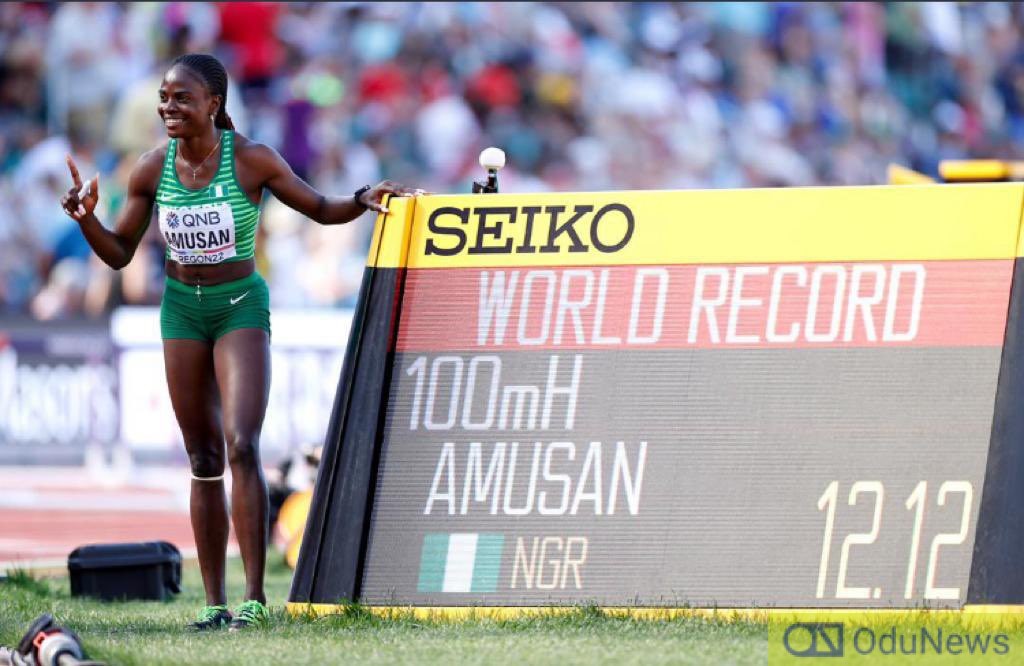The 100 metres hurdles world record holder, Tobi Amusan , has recalled how she considered quitting the sports after being left out of the women’s relay team at the 2013 Africa Youth Games in Warri.

She went on to win bronze in the long jump instead, but she admitted she was frustrated with the way officials selected athletes for events.
However, her disappointment turned blessing, after some coaches advised her to switch to the less attractive hurdles event, where she soldiered on to become the world champion after several attempts.
“The officials were always picking who they wanted in the relay team. Sometimes they would say I didn’t have the experience so they would pick whoever was their favourite,” Amusan told BBC.
“It was a lot of pressure on a young athlete. I considered quitting. I really wanted to travel with the senior national team and some coaches told me to try the hurdles.”
Even as a hurdler, she stated that she had to overcome doubts from officials, before she picked up her first senior hurdles title at the African Games in Congo-Brazzaville in 2015.
“The typical Nigerian approach is to make you feel like you cannot make it,” she said.
“I wasn’t expected to medal at those Games. There were so many voices saying I couldn’t but I used that to show that I could – and that title changed my life.
“That’s how I got a scholarships to the United States. I can say that’s really when my athletics career began. I never dreamt of going to the United States. I just wanted to run fast and be one of the Nigerian greats.”
Since moving to attend the University of Texas, El Paso, Amusan has not looked back.
She won gold in the 100m hurdles at the 2018 Commonwealth Games in Australia, and later the same year took her first African Championships title on home soil in Asaba.
Yet at major global events, she would agonisingly miss out on medals – finishing fourth at the World Championships in Doha three years ago and then again in Tokyo last year.
“2019 was tough because I remember running the fastest time in the qualification rounds, around the same time in the semi-finals and the same time in the final,” she said.
“I ran so fast but wasn’t fast enough to get a medal. I was broken, I was devastated. That was one of the most horrible experiences.
“I moved on, and then came the Tokyo Olympics. Things just crumbled a month before when I strained my hamstring at practice.”


Comments are closed.